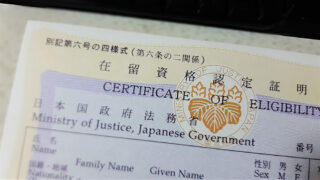For foreign companies considering investing in Japan with the following in mind:
- I would like to know if foreigners can set up a company in Japan.
- I would like to know what options are available for foreigners to do business in Japan.
- I would like to know what visa requirements apply when a foreigner sets up a company in Japan.
This article is intended to be useful for the people described above. In this article, we will explain the procedures for foreign companies to invest in Japan, focusing on the visas that need to be obtained.
Learn about visas for foreign companies investing in Japan
The content of this article is as follows:
- Options for foreigners doing business in Japan
- Definitions of representative offices, Japanese branches and Japanese corporations, and their advantages and disadvantages
- Whether or not a visa is required for business activities in Japan, and what type of visa is required
Three options for foreigners to do business in Japan
First, let’s confirm whether foreigners can set up a company in Japan. The answer is YES.
There are three basic schemes for foreign companies to invest in Japan:
- Establish a representative office in Japan
- Establish a Japan branch
- Establish a Japanese corporation
Roughly speaking, if you are going to conduct sales activities in Japan, you should choose option ② or ③ above, and if you are not, you should choose option ①. Below, we will briefly explain options ① to ③, and then add further consideration from the perspective of obtaining a status of residence.
Representative office
(1)definition
First of all, what is a representative office? It is a place where foreign companies can conduct full-scale business in Japan. It is used only for preparatory and auxiliary activities, and cannot engage in direct sales activities. Examples of activities that can be carried out at a representative office include:Examples of activities include market research, information gathering, purchasing goods, and advertising.
(2)long and short
Although the procedures required to open an account are relatively simple, you cannot conduct business activities in Japan.There are some drawbacks, such as the difficulty of obtaining work visas for staff.
Japan branch
(1)definition
Next, if you want to conduct business activities in Japan, you should set up a Japanese branch. This is the Japanese sales office of a foreign company. Therefore, legally, it is a part of the foreign company, and the Japanese branch itself does not have legal personality.
(2)long and short
The advantages of choosing to set up a Japanese branch include being able to conduct business activities in Japan, as well as being able to open a bank account and rent real estate under the name of the Japanese branch. On the other hand, the disadvantages include the requirement that at least one representative resides in Japan, and the cost of establishment (approximately 90,000 yen).
Japanese corporation
(1)definition
The most common method of entering the Japanese market is to establish a Japanese corporation. You can think of it as setting up a new company in Japan with investment from a foreign company.
(2)long and short
By establishing a Japanese corporation, you will be able to open a bank account and rent real estate under the corporation’s name, and depending on the type of corporation you choose, you can expect to gain greater social credibility. However, there is a downside to this, which is the financial burden that will be incurred. Specifically, this is the capital requirement and the cost of the incorporation procedure (approximately 200,000 yen).
Need for a status of residence?
When a foreign company invests in Japan, that is, when conducting business activities in Japan, do the managers and staff need visas? When and what kind of visa is needed? It depends on the situation. Therefore, we will briefly summarize the information below and then provide further necessary explanations.
(1)Necessity and type of residence status depending on the situation
| Situation | Whether or not you need a visa and what type |
|---|---|
| They come to Japan for a short period of time and only carry out activities such as concluding transactions. | Not necessary. |
| I have a visa with no restrictions on working. EX: Spouse etc. of Japanese nationals, long-term residents, permanent residents, spouses of permanent residents etc. No new visa application is required. |
No new visa application required |
| He currently holds a student visa, but after establishing the company he plans to be in charge of management and administration. | You will need to obtain a new visa. |
| I am not currently living in Japan, but I am planning to set up a company here in the future. | In principle, a business manager visa is required. |
(2)Visa types by job title
Where is the problem?
As mentioned above, the need for a visa varies depending on the situation. Finally, let’s focus on the visa and go into more detail.
When establishing a Japanese corporation, there are various positions for the staff working there. For example, representative director, director, auditor, department head, other staff (section chief, supervisor, staff without titles, etc.). This raises the question of what specific status of residence is required for people who take up these positions.
Therefore, we will discuss each position individually below.
Representative director
The representative director must have the “Business Manager” visa status.
Directors and Auditors
Directors and auditors also basically have a “Business Manager” status of residence. However, in certain cases, they may have a “Technical/Specialist in Humanities/International Services” or “Intra-company Transferee” status of residence. For example, when the position is nominal, the company is small, or the workload is not large.。
manager
For the position of manager, it depends on the amount of experience in “business management”. If you have more than three years of experience in “business management”, you will be considered for “business management”. If not, you will be considered for the status of residence of “Engineer / Specialist in Humanities / International Services” or “Intra-company Transferee”.
Other staff
Other staff not listed above have “Engineer/Specialist in Humanities/International Services” or “Intra-company Transferee” visas.
Summary of options and visa types for companies investing in Japan
This article explained the options available to foreign companies investing in Japan and the visas they need. The gist of it is as follows:
- There are three basic schemes for foreign companies investing in Japan. Each has its pros and cons, so you need to choose the one that best suits your needs and the risks involved.
- A representative office is a place where foreign companies can conduct full-scale business in Japan.
- A Japanese branch is a Japanese sales office of a foreign company and is treated as part of that foreign company.
- The most common method is to set up a new company in Japan with investment from a foreign company, but the cost is a problem.
- The need for and type of residence status varies depending on individual circumstances.



















































